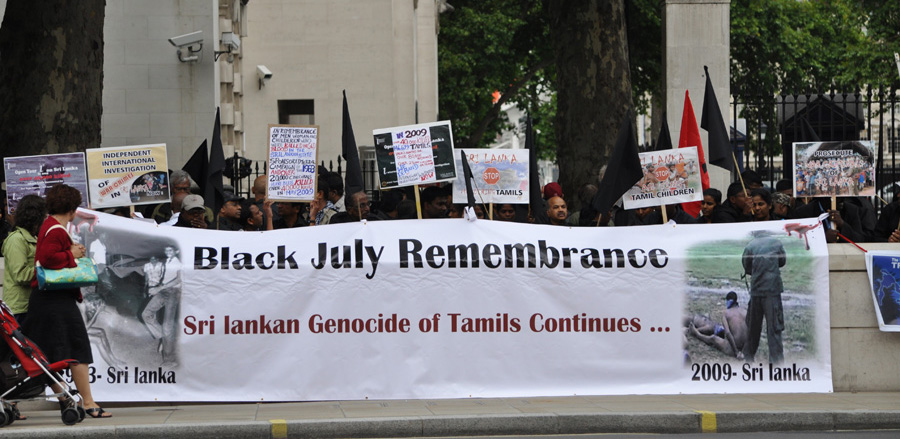 |
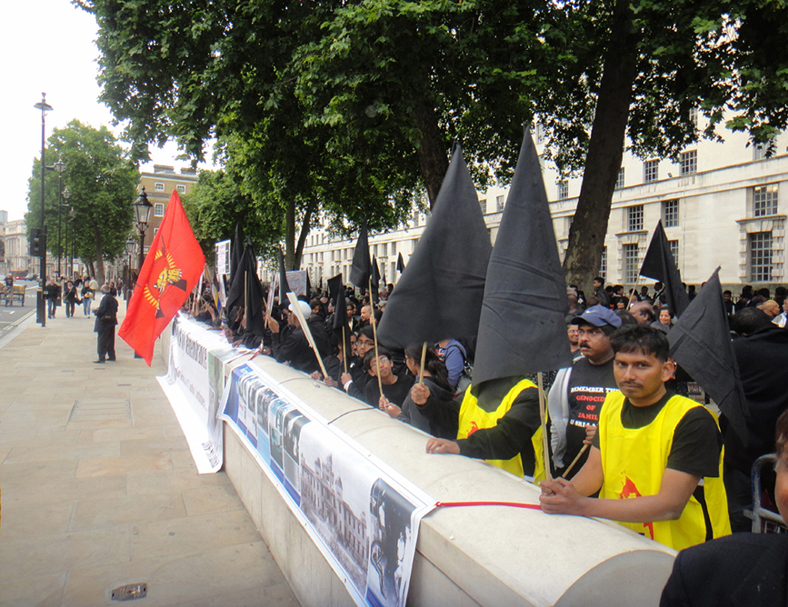 |
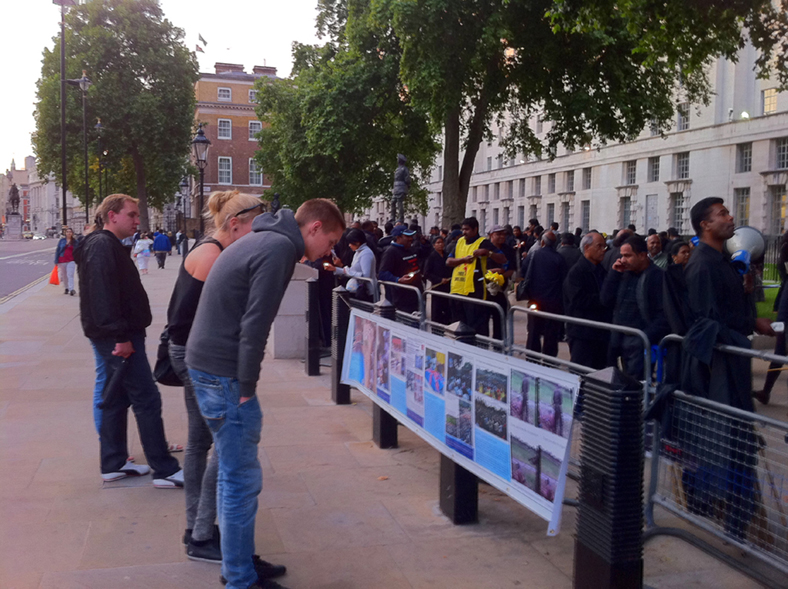 |
 |
 |
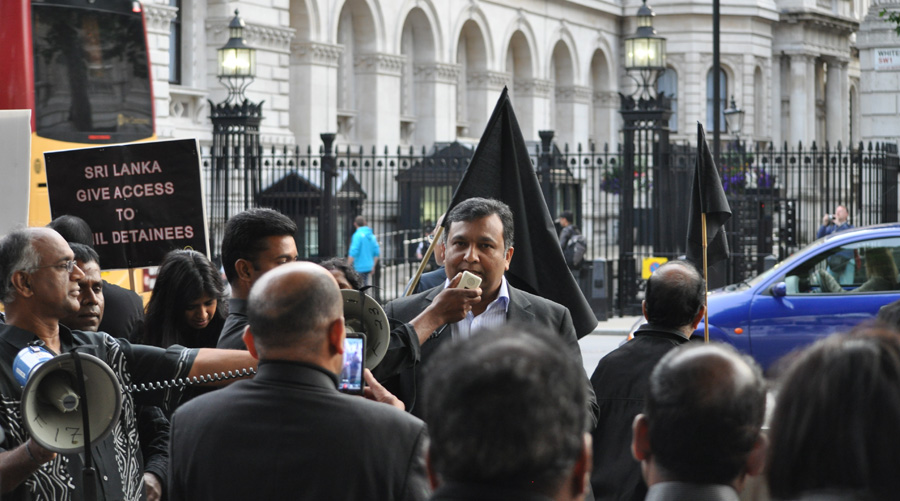 |
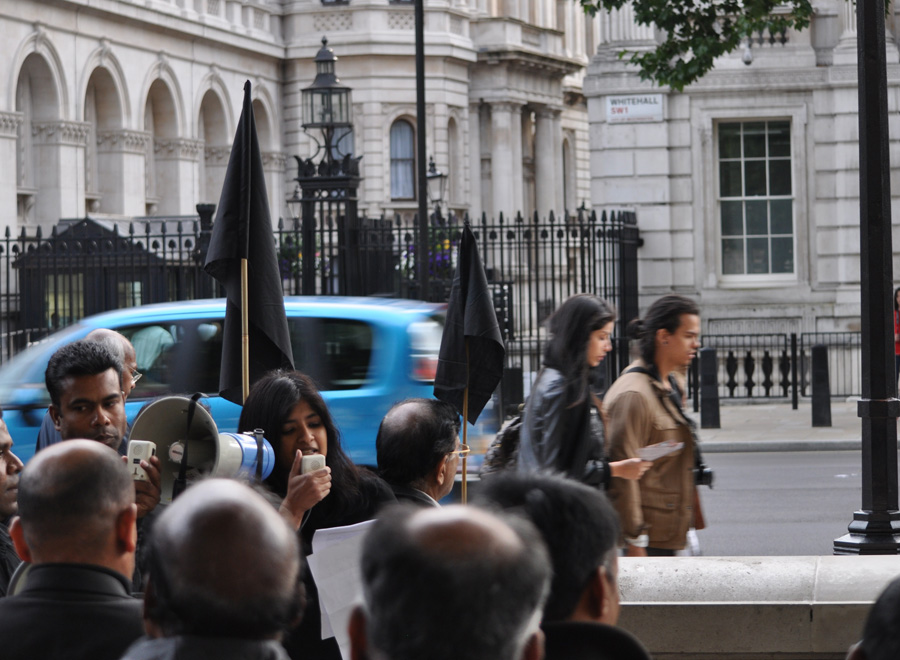 |
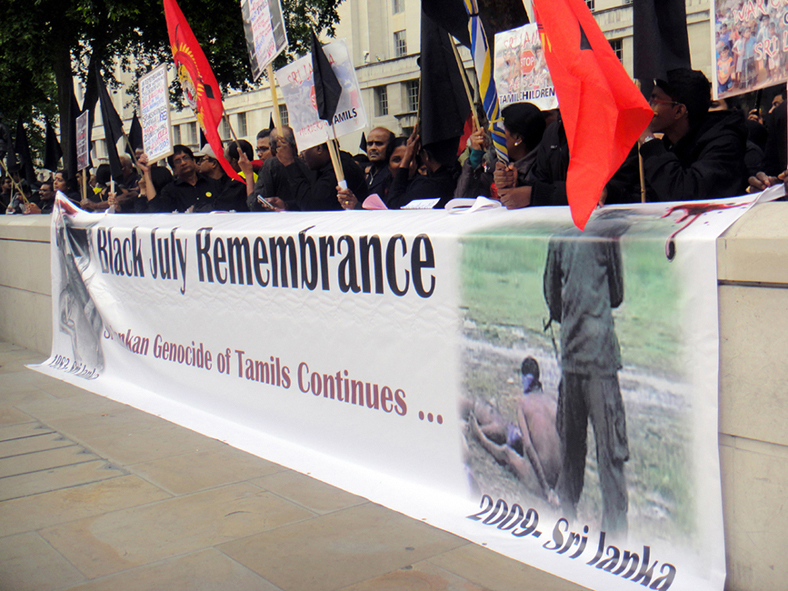 |
 |
Six days of mob violence, organised by ruling politicians and abetted by Sri Lanka’s security forces, which began on July 23 that year killed over three thousand people, and emptied the capital, Colombo, of Tamils.
On Saturday, a thousand British Tamils dressed in black and carrying black flags and Eelam national flags, held a vigil between 6 and 9 pm, with lit candles and banners commemorating the pogrom.
For several hours before the vigil began, activists and supporters handed out leaflets in the surrounding Whitehall area.
The events were organised by the British Tamil Forum (BTF).
The banners highlighted the Sri Lankan state-backed mass killings of Tamils in the 1983 pogrom, and the armed forces slaughter of 40,000 Tamil civilians in the final months of the island’s war in 2009. Each was depicted by an image that have become iconic of the event.
Amid the summer sunshine, thousands of tourists from around the world passed through the area in the afternoon and evening, along with many Londoners.
Tamil activists, including survivors of the pogrom and those who lost relatives and friends in the bloodletting, as well as second generation youth, handed out leaflets and chatted to passers by.
“28 years ago, thousands of our people were massacred by thugs led by government politicians and supported by the security forces. The entire Tamil community was driven out of Colombo. But no one has been punished or even charged,” said BTF media coordinator Shan Sutha.
“The world is increasingly becoming aware of the mass killings of 40,000 more Tamils in 2009. We are here to remind that there Sri Lanka has a longer history of mass killings of Tamils than five months [in 2009],” he told TamilNet, as tourists stopped to examine the posters behind him.
The vigil was addressed by Jan Jananayagam of Tamils Against Genocide (TAG) and Ravi Kumar of the BTF, speaking through loud hailers.
“The present is thus inextricably linked to the past. And the past will also define the future,” Ms. Jananayagam said.
“Until there is accountability for the mass atrocities against the Tamil people, until justice – the bedrock for any lasting peace - emerges, until Tamils are recognised as a people with equal rights and a rightful place in their homeland, the island’s northeast, Sri Lanka will remain synonymous with ethnic strife."
The state’s objective in organising the pogrom was to crush Tamil aspirations for self rule and economically weaken the community, she said, referring to the systematic looting and torching of Tamil-owned businesses.
However, in this regard the pogrom had had inadvertent consequences, she said.
"While Black July destroyed the Tamil economic base in the island, it created the now flourishing global Diasporic economic base. While it sought to silence Tamil political struggle ‘for once and for all’, it instead spread Tamil activism across the world. It sought to erase the Eelam Tamil cultural symbolism and identity, but instead rendered them globally recognised,” she said.
A 38 year old Tamil, who joined the event with his young family, recalled his terrifying escape from the mobs.
“I was ten [then]. We were chased down the street by people carrying swords and iron bars. We escaped, but I never saw some of classmates again.”
He spoke to TamilNet on condition of anonymity as his parents were again living in Colombo.
This year’s Black July remembrance also coincided with the 57th Commonwealth parliamentary conference in London for which around 700 parliamentarians and parliamentary officials from 54 countries are currently in London.
Activists fixed a banner stating “146,679 killed or missing in Sri Lankan war on Tamils’ to the railings surrounding the Commonwealth flags erected on Parliament Square.
 |
